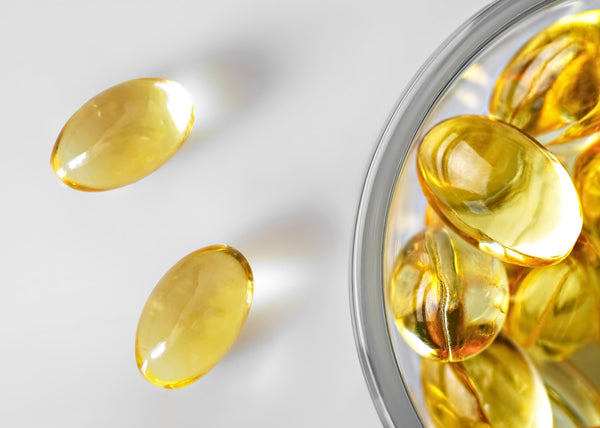When it comes to building muscle and supporting an active lifestyle, choosing the right protein source is crucial. For decades, whey protein has dominated the supplement market and has been hailed as the gold standard for fueling muscle growth. However, as more people embrace plant-based diets and prioritize sustainability, an interesting question arises - can vegan protein sources like peas, soy, and rice match whey's muscle-building potential?
The Reign of Whey Protein
Whey protein has long reigned as the king of muscle-building supplements. Derived from milk during the cheese-making process, this dairy-based protein powder offers a rich source of essential amino acids and branched-chain amino acids like leucine that are key for stimulating muscle protein synthesis. With its fast absorption rate and a well-established reputation backed by decades of research, it's no surprise whey protein has become a multi-billion dollar industry and staple in athletic nutrition plans worldwide.
The "Incomplete Protein" Myth
In contrast to whey's stellar reputation, plant proteins have historically been viewed as "incomplete" proteins. This is because many individual plant sources lack one or more of the essential amino acids required by the body for various functions. Whey protein derived from milk, on the other hand, is considered a "complete" protein as it contains an adequate amount of all the essential amino acids in the optimal ratios for muscle growth.
However, this view overlooks that while individual plant proteins may be incomplete on their own, strategically combining different sources like grains and legumes or seeds and nuts can provide all the essential amino acids needed to form a complete protein profile. For example, mixing rice with beans or peas with chia seeds creates a plant-based "complete protein" with the full amino acid spectrum.
The Research on Plant vs. Whey Protein
So if plant protein sources can provide a complete amino acid profile comparable to whey, how do they actually stack up in terms of supporting muscle growth and fat loss? The latest research suggests the differences may be negligible.
Multiple studies have found that as long as plant-based and whey protein powders provide comparable levels of protein and BCAAs per serving, they will both work equally well to encourage muscular hypertrophy or muscle growth when consumed as part of a balanced diet and exercise regimen.
For instance, a 2019 study in Sports Medicine found no significant difference in muscle growth when participants were supplemented with pea protein or whey and followed a weight training program. Another study that year showed plant proteins like soy, pea, and wheat can stimulate muscle protein synthesis after exercise just as well as dairy proteins like whey.
The Potential Advantages of Plant Protein
Muscle-Building Benefits
While plant proteins like peas, soy, and rice are now scientifically validated as viable muscle-building alternatives to whey, they may also offer certain advantages for some individuals. (Source - NIH)
Digestive Health
For those with lactose intolerance or dairy sensitivities, whey's dairy base can lead to gastrointestinal symptoms like bloating, gas, and stomach discomfort. Plant-based protein sources are dairy-free and provide an equally muscle-building but easier-to-digest option without running into these issues.
Ethical and Environmental Considerations
Plant proteins also appeal to vegans, vegetarians, and anyone looking to reduce their consumption of animal products for ethical or environmental reasons. Sources like pea protein are more sustainable and eco-friendly compared to the resource-intensive production of dairy-based whey. (Source - NIH)
Appetite Regulation and Weight Loss
Additionally, research suggests protein supplements made from peas and plant sources have comparable effects on appetite regulation and satiety compared to whey, making them equally effective for weight loss when combined with a calorie-controlled diet. (Source - NIH).
The Bottom Line
The debate between plant-based proteins like pea and whey is ongoing, with no definitive superior option. It is often observed that when total protein intake and training variables are matched, both plant and animal proteins are equally effective for muscle building and weight loss. (Source - NIH)
High-quality plant proteins like pea, soy, and rice provide all nine essential amino acids needed for muscle synthesis and growth, similar to whey. While whey protein may have a slight edge in leucine content and rapid absorption, plant proteins have been proven to stimulate muscle growth equally over time with adequate consumption.
The "best" protein source ultimately comes down to individual factors like dietary preferences, food sensitivities or intolerances, environmental impact concerns, and personal values around ethics and sustainability. For fitness enthusiasts who tolerate dairy well and prioritize maximum muscle growth, whey remains an excellent choice. But for those seeking a plant-based, allergen-free, and environmentally-friendly option, modern vegan protein powders made from sources like peas can fuel muscle development and a slimmer physique when combined with proper training and overall nutrition.
The key is choosing a high-quality source, consuming enough protein tailored to your goals and needs.



























 DOWNLOAD NOW
DOWNLOAD NOW
